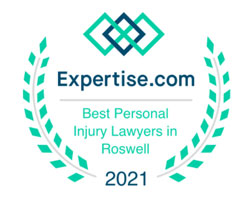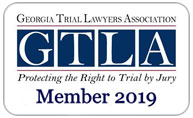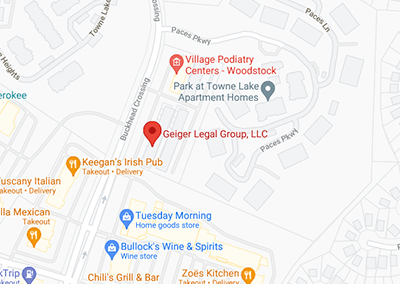11 Things to Do After a Motorcycle Accident

The shock of being involved in a motorcycle wreck can make it hard to think about what steps you should be taking in the minutes, hours, and days following an accident. It may seem like you have no control over your situation. However, there are some steps you can take to help protect your health and your legal rights to compensation after a serious motorcycle crash.
If you have been injured in a motorcycle accident due to someone else’s negligence, contact the North Georgia personal injury attorneys at Geiger Legal Group, LLC, today. Our attorneys can review your case in a free, no-obligation consultation.
1. Check Yourself for Injuries
The first thing you should do after your motorcycle accident is to check yourself for injuries. The shock of the accident can cause you to experience a rush of adrenaline and endorphins that lessen the sensation of pain and other symptoms of physical injuries. Check yourself for visible injuries and carefully try to move each of your extremities. If you feel any pain or discomfort, stop immediately. Continuing to move when you’ve been injured can actually worsen your injuries.
2. Call 911 or Local Law Enforcement
If you or someone else involved in the accident has been injured, call 911 to summon paramedics. If you do not need paramedics on the scene, you can contact the local police department to send an officer to investigate. The officer will then prepare a police accident report. Insurance companies often rely on police accident reports as a key piece of evidence in determining fault for a motor vehicle accident. They may choose to deny a claim if no police accident report was prepared.
3. Collect Contact Information
Collect names, contact information, vehicle information (such as make/model/color/ registration number), and insurance information for each of the drivers involved in your accident. You will need this information if you later choose to file a claim for compensation. Also, get the names and contact information for any witnesses to the crash.
4. Gather Evidence
If it is safe to do so, you or someone you call should take photographs of the accident scene. This includes details such as damage to the vehicles involved in the accident, any skid marks on the road, the traffic controls at the scene, the visual perspectives of each of motorist immediately leading up to the accident, and the lighting, weather, traffic, and road conditions at the time. If you suffered any visible injuries, photograph those as well.
5. Cooperate with Law Enforcement
Speak to the responding officer and answer any questions he or she asks. Be honest, but don’t embellish or exaggerate your responses.
6. Seek Treatment and Follow Your Doctor’s Orders
See a physician for your injuries as soon as possible. Follow all treatment instructions. If you slack off on your treatment or ignore your doctor’s orders, the insurance company may use that to deny your claim for compensation.
7. Alert Your Insurance Company
Even if you don’t think you caused your accident, you still must inform your insurance company about your crash. Most insurance policies require the insured riders to notify the company of any accidents regardless of fault, usually within a certain period of time. If you fail to timely notify your insurance company of your motorcycle accident and you later try to file a claim for coverage under your own policy, such as uninsured/underinsured motorist coverage, the insurance company may deny your claim.
8. Contact an Experienced Motorcycle Accident Attorney
Talk to a knowledgeable motorcycle accident attorney as soon as possible. This will enable your attorney to preserve evidence quickly and conduct a thorough investigation of what happened. Your attorney can also advise you on steps to take as your claim progresses.
9. Keep a Journal About Your Recovery, Pain, and Disabilities
Economic damages like medical expenses and lost wages can be clearly calculated from bills, invoices, pay stubs, and other records. However, non-economic damages such as pain and suffering or lost quality of life require a more subjective calculation. By keeping a journal of your recovery from your injuries, you can have a record to point to as evidence of the negative impacts that your injuries have had on your quality of life.
10. Keep All Related Bills
Retain copies of all bills and invoices for expenses you incur as a result of your accident. This includes hospital bills and other medical invoices, repair costs for your motorcycle, transportation costs to and from medical appointments, etc. Also keep copies of pay stubs, income statements, tax returns, or other proof of your income. These documents will later help you establish the exact amount of your economic damages.
11. Stay Off Social Media
Finally, you should avoid posting on social media. You may be tempted to discuss your accident with family and friends on social media. However, you may inadvertently make statements that contradict statements you have given to the insurance company or in court, which can hurt your credibility. In addition, if you claim that you suffered injuries in your motorcycle accident and you later post photos or videos of yourself participating in recreational activities or traveling, the insurance company may point to those as proof that you weren’t as injured as you claim.
Hurt in a Motorcycle Accident? Learn About Your Legal Rights Now
You don’t have to face a complex motorcycle injury claim on your own. If you were injured in a wreck, contact a skilled motorcycle accident attorney at Geiger Legal Group, LLC, now for a free consultation.














